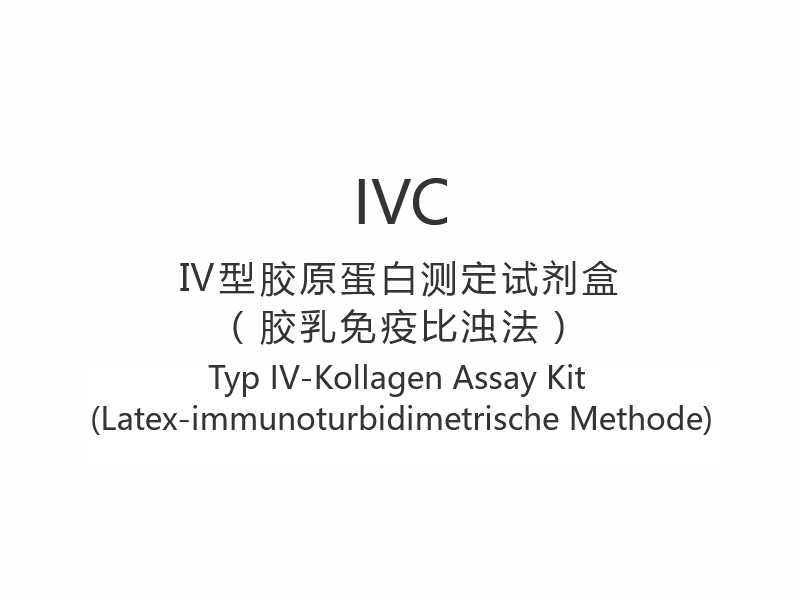Let us create a wonderful future together!
The Type IV Collagen Assay Kit is a convenient, high-throughput method for the measurement of collagen in cell cultures. The kit allows for monitoring the protein expression profile and relative amounts of Collagen IV in cultured cells. It can also be used for screening the effects of inhibitors and activators. However, unlike the other assay kits, this kit does not require special samples. Therefore, it is applicable for all scientists and biomedical researchers.
This type of collagen is a major component of the basal lamina and contains no regular glycines. Its structure is elongated and its composition is loose. Six different genes produce type IV collagen and are associated with Alport syndrome and Goodpasture syndrome. It is important to follow the kit instructions closely, and ensure the correct temperature and humidity levels are maintained. The type IV Assay Kit is not for diagnostic procedures or use in human, animal, or food products. The manufacturer guarantees that the kit meets strict quality standards and is manufactured in ISO-9001 certified facilities.
This kit is highly accurate and precise. The sensitivity and specificity of the kit is higher than the other assays. The sensitivity of this kit is 82.1% and its sensitivity is 83%. Its cutoff value is 19 ng/ml, which is comparable to the results obtained by Murawaki et al. This study is the most recent published data for the Type IV Collagen Assay kit.
When using this Type IV Collagen Assay Kit, the end user should be aware of the procedure and dilutions. The test principle used is Sandwich enzyme immunoassay. The samples and standards are added to the microtiter plate with Biotin-conjugated antibodies, and the solution is developed with Avidin conjugated Horseradish Peroxidase. This is the standard for the detection of Collagen.
The Type IV Collagen Assay Kit uses a sandwich enzyme immunoassay technique. It uses a microtiter plate that has been pre-coated with an antibody specific for the Collagen type. The samples and standards are then added to the microplate wells, which are biotin-conjugated. The sample and standard are then analyzed. The color of the reaction is proportional to the amount of collagen in the samples.
The type IV Collagen Assay Kit uses sandwich enzyme immunoassay technology to detect the levels of Collagen in serum. The kit has a highly sensitive and specific test method. The ELISA kit also has a high accuracy rate, enabling it to be used in the detection of Collagen in human or animal samples. The test can be used in clinical and research laboratories. The tests can be performed on a variety of biological fluids.
The Type IV Collagen Assay Kit was rated highly accurate and precise. The kit detected the presence of the protein in serum containing high molecular-type collagen. The sensitivity of the kit was 84.7%. The intra-assay precision was 19.9%. This is a very good result for the Type IV Collagen Assay Kit. You can also order the Test assay for human or animal blood.
This assay uses sandwich enzyme immunoassay principle. The kit provides a microtiter plate pre-coated with an antibody specific for Collagen Type IV. After adding the samples or standards, the anti-antibody reaction occurs when the proteins of the standard are compared with the samples. The enzyme-based method also helps to distinguish between the two types of collagen. The latter has the higher molecular-weight.
The Type IV Collagen Assay uses the Sandwich enzyme immunoassay principle to determine the presence of collagen in samples and controls. Using the kit is easy and requires little or no preparation. The sample is added to the plate wells of the microtiter plate before the test. A positive result is obtained if the antibodies react with the sample. Optimal dilutions are determined by the end user.
In addition to the commercially available Type IV Collagen Assay Kit, the researchers also performed an in vitro analysis of the reactivity of the protein in the samples. They found that the high molecular-weight fraction of the collagen was antigenically reacted with both reactivity and homogeneic content. The method is also widely applicable in human studies. For example, the serum of a healthy person is characterized by high-molecular-weight concentration of type IV collagen.



